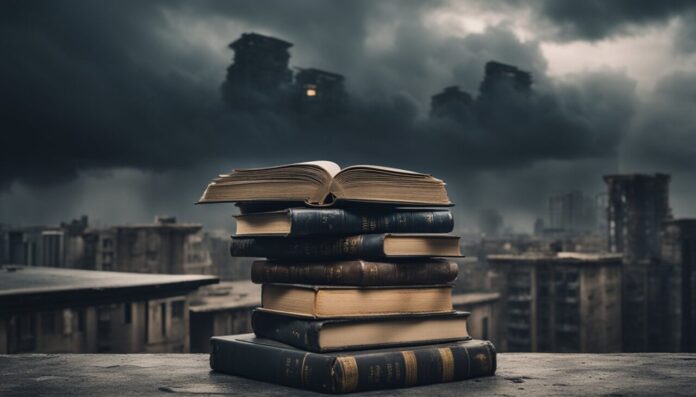
At CuriousMatrix, we enjoy exploring dystopian topics from both fictional and non-fictional perspectives, delving into various aspects of the future of our society (World in 2050, World in 1000 Years, Future World).
To complement this exploration, we’ve curated a list of the top 10 dystopian books of all time!
Dystopian literature has been around for centuries, but it gained popularity in the 20th century. Many of the books on this list were written during this time and have become classics. These novels have themes that are still relevant today, such as government control, censorship, and the (inappropriate) use of technology.
Whether you are a fan of dystopian literature or new to the genre, this list has something for everyone.
So, let’s explore the 10 best must-read dystopian novels of all time.
Here we go:
The Handmaid’s Tale
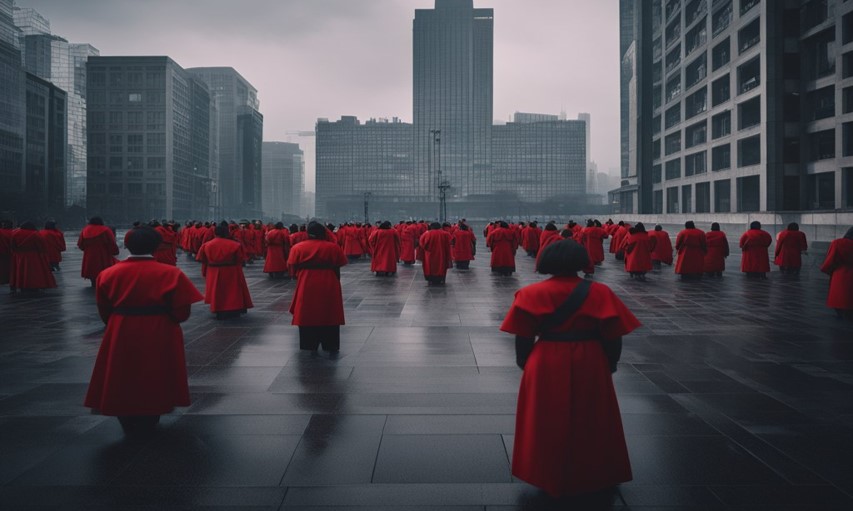
Margaret Atwood’s “The Handmaid’s Tale” is a dystopian novel that has become a cultural phenomenon. Set in a future where the United States has been replaced by a theocratic dictatorship called the Republic of Gilead, the novel tells the story of Offred, a Handmaid who is forced to bear children for her Commander and his wife.
The novel explores themes of power, gender, and oppression, and has been praised for its vivid world-building and complex characters. It has won numerous awards and has been adapted into a successful television series.
One of the most striking aspects of “The Handmaid’s Tale” is its portrayal of the oppression of women. The Handmaids are stripped of their identities and reduced to their reproductive function, forced to wear red robes and white bonnets that obscure their faces. The novel also explores the intersection of religion and politics, as the leaders of Gilead use religious texts to justify their actions.
Fahrenheit 451
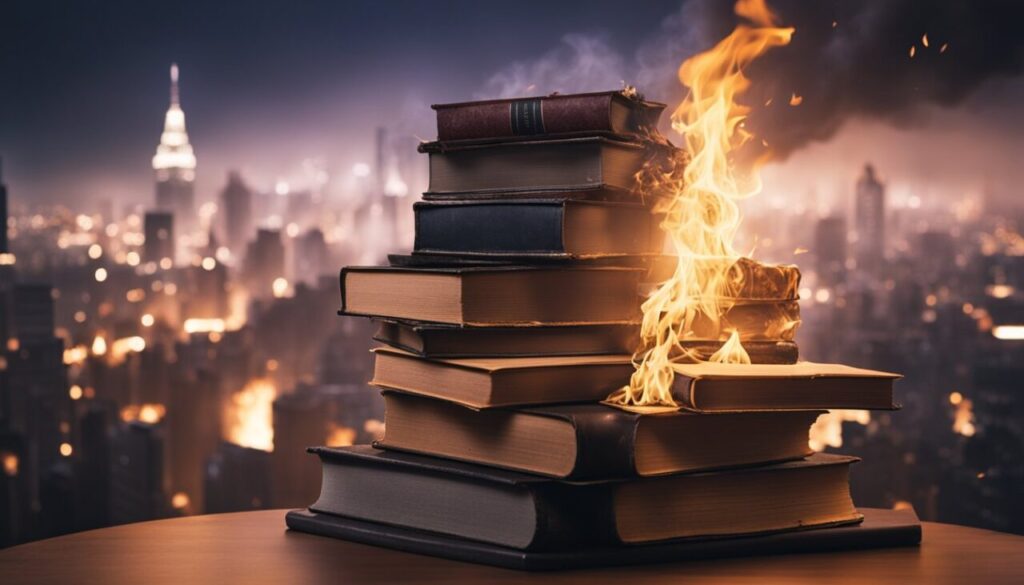
Fahrenheit 451 by Ray Bradbury is a classic dystopian novel that paints a terrifying picture of a future society in which books are banned and “firemen” are tasked with burning any that are found. The story follows the protagonist, Guy Montag, as he becomes increasingly disillusioned with his role as a fireman and begins to question the government’s motives.
The novel has been widely praised for its vivid imagery and powerful storytelling. It has been adapted into several films, plays, and even a video game.
Overall, Fahrenheit 451 is a must-read for anyone interested in dystopian literature. Its themes are as relevant today as they were when the book was first published in 1953, and its message is one that will surely stay with readers long after they finish the final page.
The Time Machine
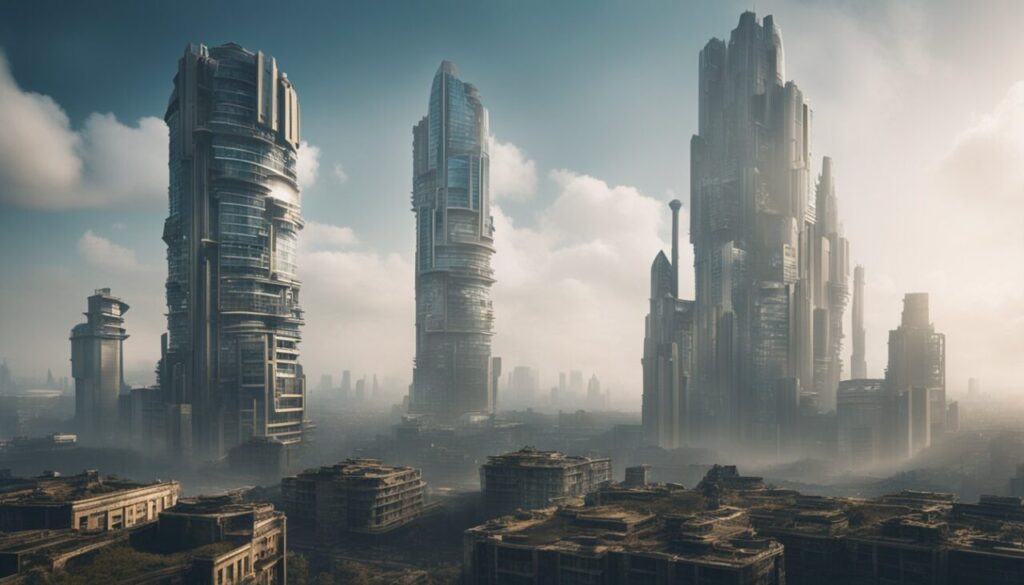
H.G. Wells’ The Time Machine is a classic dystopian novel that takes the reader on a journey into the future, 80,000 years beyond the protagonist’s life. The story follows an unnamed time traveler who builds a time machine and travels to the far future where he encounters two races: the Eloi and the Morlocks.
The Eloi are a peaceful, childlike race that lives in a seemingly utopian society, but they lack curiosity, and intelligence, and are completely dependent on the Morlocks. The Morlocks, on the other hand, are a subterranean race that feeds on the Eloi and are responsible for maintaining the machinery that keeps the Eloi’s society running.
The novel explores themes of class struggle, evolution, and the consequences of societal decay. The Eloi and the Morlocks represent the two extremes of the class divide, and their relationship is a metaphor for the exploitation of the working class by the ruling class.
Nineteen Eighty-Four (1984)
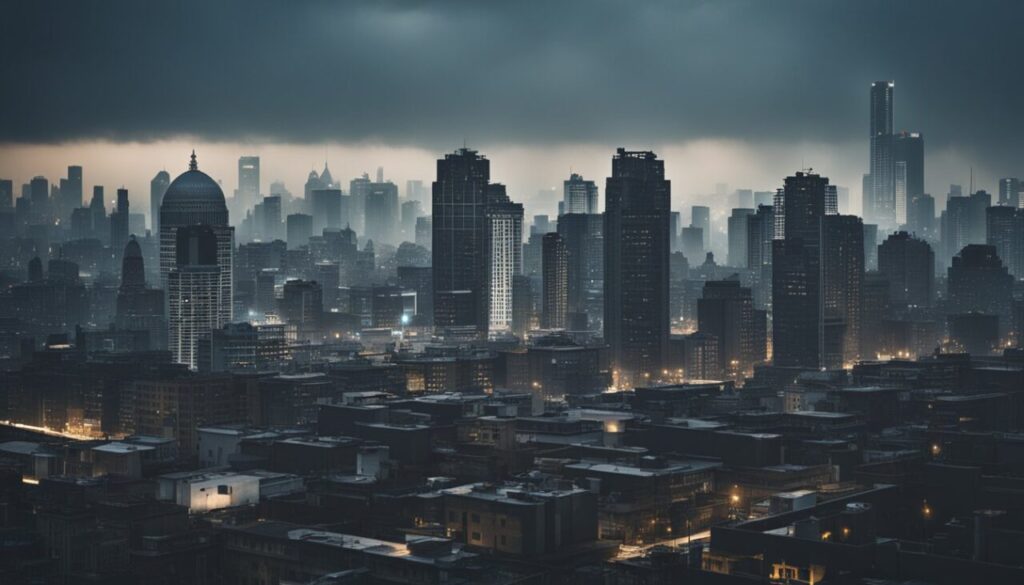
Nineteen Eighty-Four by George Orwell is a classic (and most famous) dystopian novel that has stood the test of time. Published in 1949, the novel is set in a future dystopian society where the government has complete control over every aspect of people’s lives. The story follows Winston Smith, a low-ranking member of the ruling Party, who begins to rebel against the oppressive regime.
The novel is famous for its portrayal of a totalitarian government that uses propaganda, surveillance, and censorship to maintain its power. The government, known as “Big Brother,” is always watching, and any dissent is ruthlessly suppressed. The novel’s themes of government oppression, censorship, and the dangers of totalitarianism have made it a must-read for anyone interested in dystopian literature.
Nineteen Eighty-Four has had a significant impact on popular culture, and many of its concepts and phrases have become part of the English language. Phrases such as “Big Brother is watching you” and “doublethink” have become part of the lexicon, and the novel has been adapted into numerous films, television shows, and plays.
It is also worth noting how “1984” has become even more popular in recent times, especially because of different pandemic measures in the past few years.
Parable of the Sower
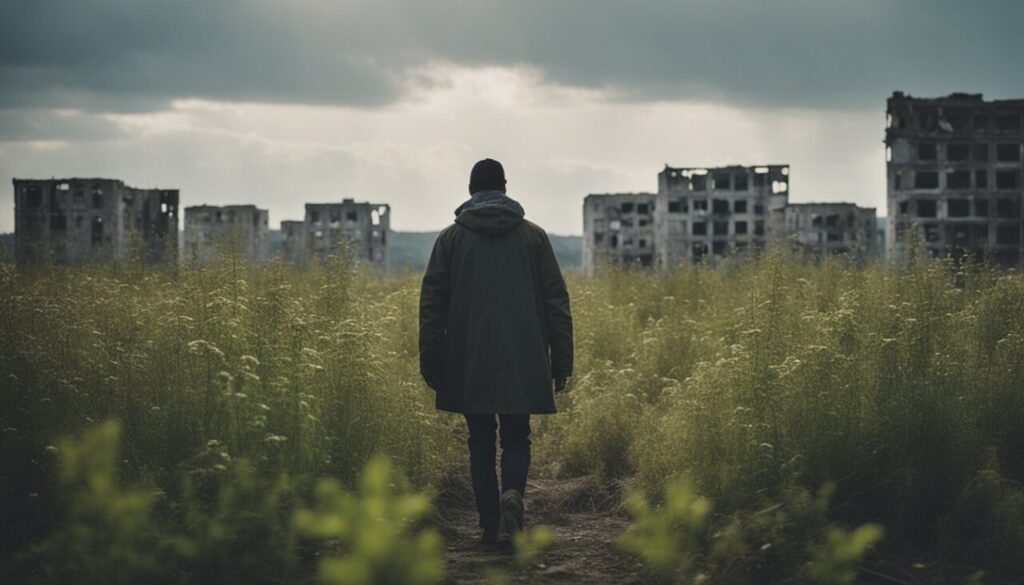
“Parable of the Sower” is a dystopian novel written by Octavia E. Butler in 1993. The novel is set in California in the early 2020s, where people are dealing with global climate change and an economic crisis. The story revolves around Lauren Olamina, a 15-year-old Black girl living in a gated community.
Lauren has a condition called “hyperempathy,” which makes her feel the pain of others. She is also a visionary who dreams of creating a new religion based on the idea of “Earthseed,” which is centered around the belief that humanity’s destiny is to travel beyond Earth and settle on other planets.
The novel has been praised for its prophetic vision of the future, as many of the issues it addresses, such as climate change, economic inequality, and political instability, have become more pressing in recent years. It has also been noted for its exploration of themes such as race, gender, and religion.
Station Eleven

Station Eleven by Emily St. John Mandel is a post-apocalyptic novel that tells the story of a group of actors and musicians who travel around the Great Lakes region to perform Shakespeare’s plays after a deadly flu pandemic wipes out most of the world’s population. The novel is a beautifully written exploration of human resilience and the power of art in the face of disaster.
The novel has been widely praised for its unique perspective on the post-apocalyptic genre. It is not a story of survival, but rather a story of how people find meaning and purpose in a world that has been stripped of its former glory. Mandel’s prose is elegant and poetic, and she weaves together multiple timelines and characters to create a rich and complex tapestry.
One of the most interesting aspects of Station Eleven is the way it explores the relationship between art and survival. The Traveling Symphony, the group of actors and musicians at the heart of the novel, believe that art is essential to the human experience, even in the bleakest of circumstances. They perform Shakespeare’s plays not just to entertain, but to remind people of what it means to be human.
Overall, Station Eleven is a haunting and thought-provoking novel that will stay with readers long after they have finished it.
The Trial
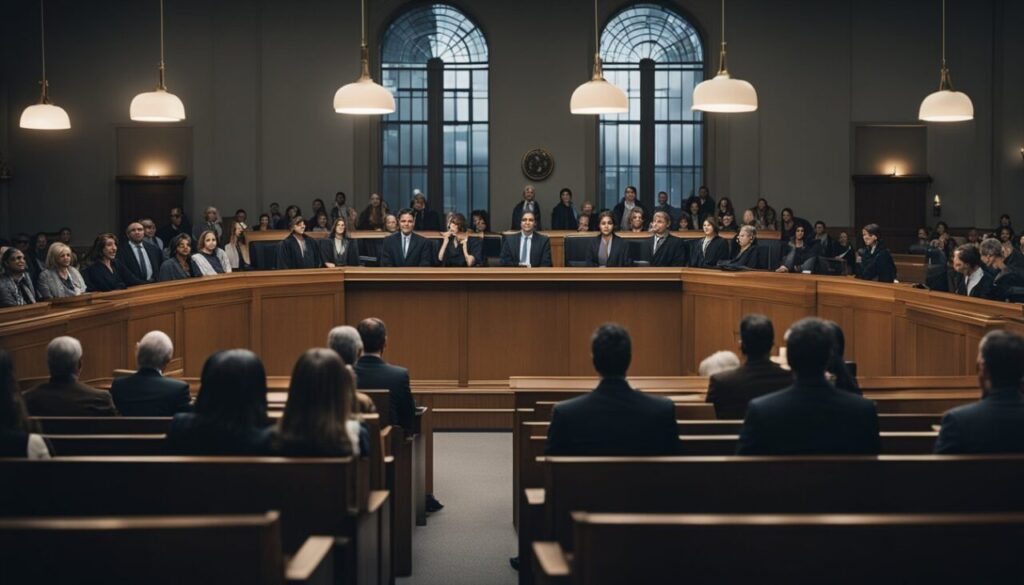
“The Trial” is a dystopian novel written by Franz Kafka in 1914 and 1915, and it was published posthumously on 26 April 1925.
The novel tells the story of a man named Josef K., who is arrested one morning by two mysterious agents. However, they refuse to tell him what crime he is accused of. He is not thrown into prison pending his trial but allowed to carry on with his day-to-day affairs until summoned by the Committee of Affairs.
The novel is known for its absurdity, surrealism, and existentialism. It is a commentary on the dehumanizing effects of bureaucracy and the legal system, where the individual is at the mercy of an impersonal and incomprehensible system. Josef K. is trapped in a world where he is guilty until proven innocent, and the process is never-ending. He is constantly searching for answers, but the more he searches, the more he realizes that there are no answers.
“The Trial” is really a must-read for anyone interested in dystopian literature. It is a masterpiece of modern literature that explores the human condition, bureaucracy, and the legal system. The novel has also been adapted into several films, plays, and operas.
Brave New World
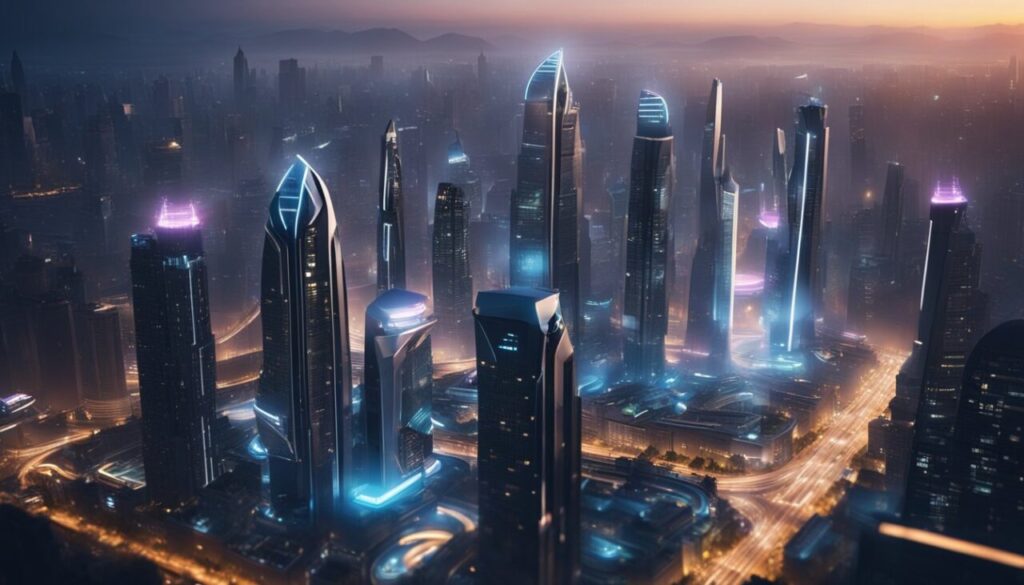
Brave New World is a famous dystopian novel by Aldous Huxley. Together with ‘1984’ by George Orwell, Huxley’s book is perhaps most well-known in dystopian literature.
The novel is set in a future society that is controlled by technology (sounds familiar?) and social conditioning. The story is centered around the character of Bernard Marx, who is a member of the ruling class but feels alienated from his society.
The novel’s themes include the dangers of technology, the dehumanization of society, and the importance of individuality. Huxley’s vision of the future is one in which people are conditioned from birth to accept their place in society and to be content with their lot in life.
One of the most interesting aspects of Brave New World is the way that Huxley uses language to convey his ideas. The novel is full of neologisms and scientific jargon that help to create a sense of a world that is completely different from our own.
The Power
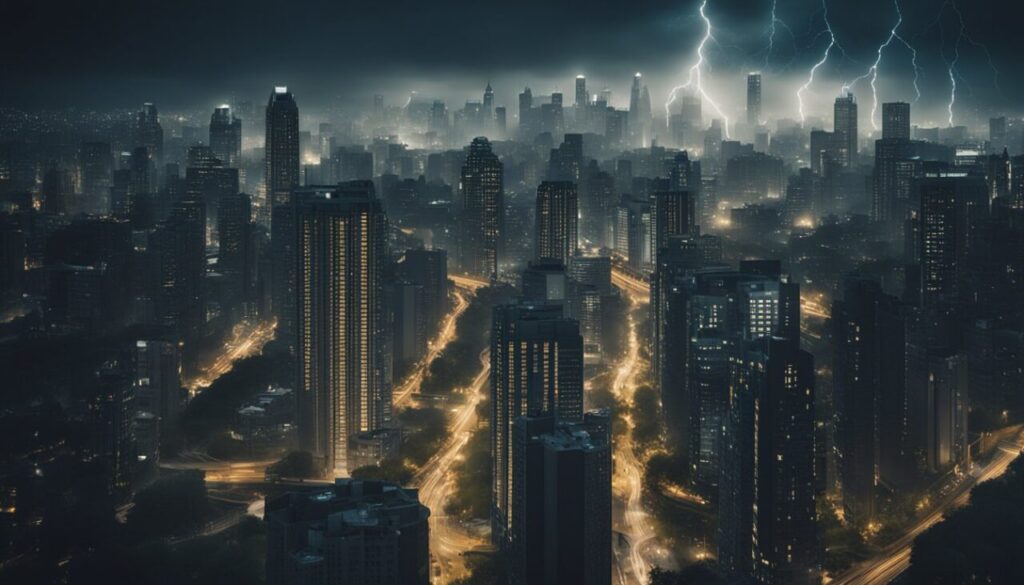
Naomi Alderman’s The Power is a dystopian novel that explores the concept of power and gender roles in society. The book was published in 2016 and has since become one of the best-selling dystopian novels of the last decade.
The novel is set in a world where women suddenly develop the power to generate electricity from their fingertips, giving them a newfound physical dominance over men. The book follows the lives of several characters, including Allie, a young girl who becomes a religious figure named Mother Eve after using her power to kill her abusive foster father, and Roxy, the daughter of a London mob boss who witnesses her mother’s murder.
The book challenges societal norms and explores themes of control and oppression. It is a thought-provoking and engaging read that has received critical acclaim. The New York Times describes it as “a fascinating look at what the world might be like if millennia of gendered power dynamics were flipped overnight.”
The Giver
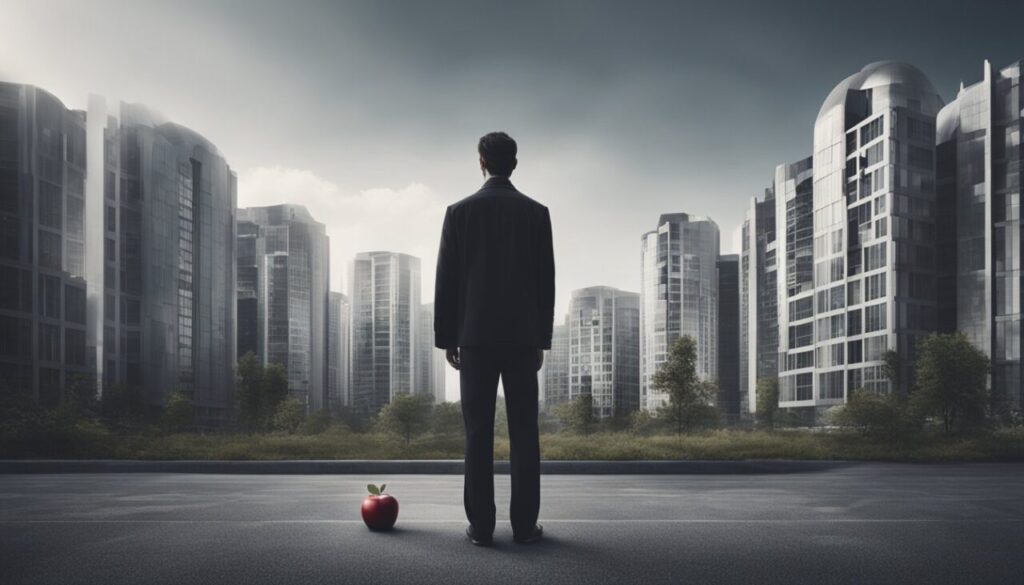
“The Giver” is a classic dystopian novel by Lois Lowry that was published in 1993. It is set in a society that appears to be a utopia, but in reality, it is a dystopia where people’s emotions, memories, and choices are suppressed. The novel follows the story of Jonas, a 12-year-old boy who is chosen to be the Receiver of Memory, a role that involves receiving memories of the past from the previous Receiver, who is now known as the Giver.
The novel explores themes such as individualism, memory, and the nature of freedom. It has been praised for its thought-provoking nature and its ability to challenge readers’ perceptions of the world around them. The novel has won several awards, including the Newbery Medal in 1994.
One of the strengths of “The Giver” is its ability to create a vivid and believable dystopian society. The society depicted in the novel is highly controlled, with strict rules and regulations that govern every aspect of people’s lives. This control is achieved through the suppression of emotions, memories, and choices, which are all seen as potential sources of conflict and disorder. The novel also explores the consequences of this control, such as the loss of individuality and the inability to experience true joy or love.
We hope you enjoy our selection of the best dystopian books. While there are numerous other great ones, these, in our opinion, deserve a spot in the top 10.
****Affiliate disclosure: As an Amazon Associate, we may earn commissions from qualifying purchases from Amazon.com. If you chose to purchase something from our links, it won’t cost you anything extra and we might earn a commission which helps us to continue publish good content.
Note: If you’re interested in similar articles and book recommendations we invite you to check out:




















